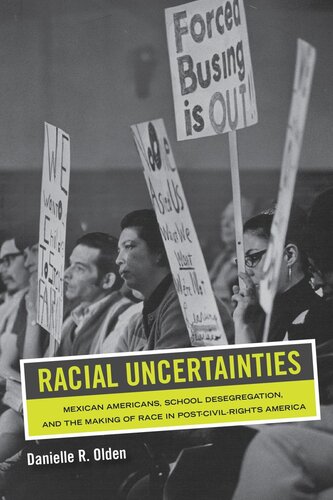

Most ebook files are in PDF format, so you can easily read them using various software such as Foxit Reader or directly on the Google Chrome browser.
Some ebook files are released by publishers in other formats such as .awz, .mobi, .epub, .fb2, etc. You may need to install specific software to read these formats on mobile/PC, such as Calibre.
Please read the tutorial at this link: https://ebookbell.com/faq
We offer FREE conversion to the popular formats you request; however, this may take some time. Therefore, right after payment, please email us, and we will try to provide the service as quickly as possible.
For some exceptional file formats or broken links (if any), please refrain from opening any disputes. Instead, email us first, and we will try to assist within a maximum of 6 hours.
EbookBell Team

4.3
68 reviewsMexican American racial uncertainty has long been a defining feature of U.S. racial understanding. Were Mexican Americans white or nonwhite? In the post–civil rights period, this racial uncertainty took on new meaning as the courts, the federal bureaucracy, local school officials, parents, and county activists sought to turn Mexican American racial identity to their own benefit. This is the first book that examines the pivotal 1973 Keyes v. Denver School District No. 1 Supreme Court ruling, and how debates over Mexican Americans' racial position helped reinforce the emerging tropes of colorblind racial ideology. In the post–civil rights era, when overt racism was no longer socially acceptable, anti-integration voices utilized the indeterminacy of Mexican American racial identity to frame their opposition to school desegregation. That some Mexican Americans adopted these tropes only reinforced the strength of colorblindness in battles against civil rights in the 1970s.